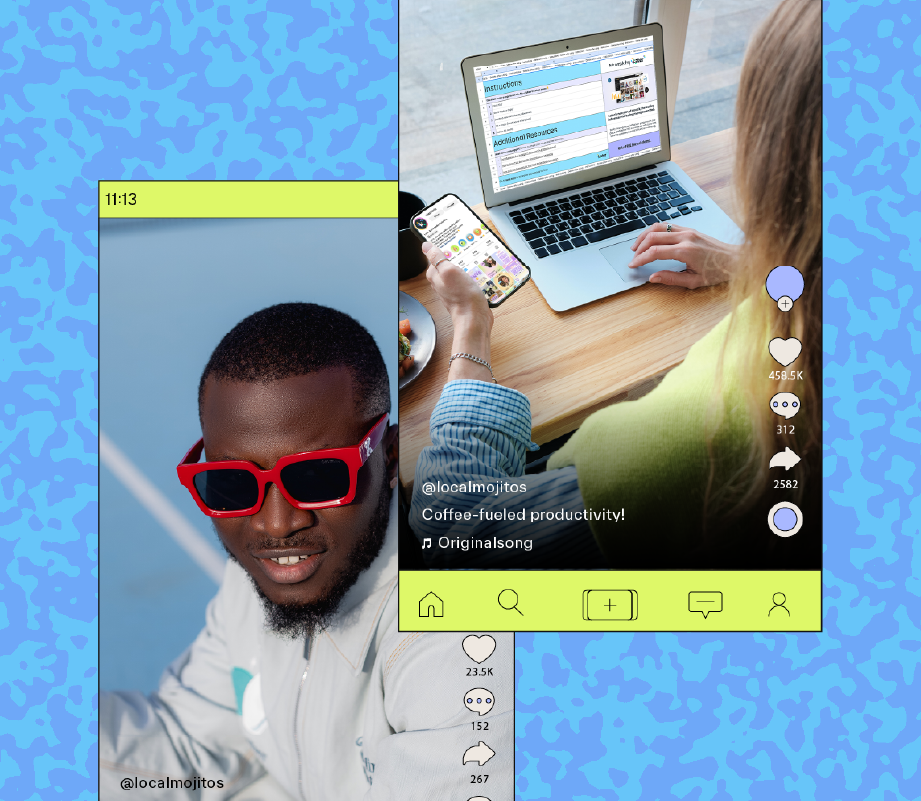8 Key Categories In an Influencer Scorecard (& What They Mean)
We’ve pinpointed eight categories that brands can use as a starting point for assessing potential influencer partners.
Let’s break them down.
#1: Thought Leader
Is this influencer a trusted advisor in their industry or niche?
This may present itself by their following count (though take this with a grain of salt), engagement rate, previous brand collaborations, awards, and reviews.
More importantly – does their content reflect that they’re as “knowledgeable” as they claim to be?
For example, a food influencer who specializes in baking should have tons of posts related to recipes and cooking tips.
TIP: Download our free influencer scorecard template to help you evaluate every influencer on your wishlist!
#2: Value
Does the influencer’s content educate, inspire, or entertain their audience?
This scorecard category is key.
If they don’t know how to connect with their audience and provide value, the likelihood of your campaign being successful is slim to none.
Audit their comments, saves, and shares in this scorecard section to gauge how engaged their followers are.
TIP: Micro influencers have highly engaged communities due to their relatability. Read more: How to Grow Your Brand With Micro Influencer Marketing
#3: Relevant
Is the influencer’s content relevant to the audience you’re trying to reach with your campaign?
For example, if you’d like to tap into those who’d be interested in social media management tools, working with an influencer whose content is geared towards marketing and entrepreneurship might be a better fit than working with a beauty influencer.
Want to plan, manage, and analyze all of your social media content in one spot? ’s tools are trusted by 7M+ marketers, creators, and brands. Create an account — for free.
#4: Aligned
Does the influencer align with your brand mission and values?
The best campaigns are those that feel like a natural fit — and are an extension of your brand.
Of equal importance? Influencers who genuinely use and like your products or services.
It’ll make your collaboration feel authentic, and is more likely to convert their followers into customers. Cha-ching.
TIP: For inspiration, bookmark this blog: 7 Influencer Marketing Campaigns To Inspire Your Next Launch
#5: Consistent
When it comes to vetting potential influencer partners, consistency is the name of the game.
While you audit their content and review their media kit, ask yourself: Do they post engaging, high-quality content on a regular basis?
And “high-quality” doesn’t necessarily mean professional photos or glossy videos.
But is their on-screen text readable? Does their feed have a somewhat cohesive theme or “aesthetic”? Do they post regularly?
The more consistent they are, the more trust they’ve built with their audience (and can translate to your campaign).
ICYMI: Download our free influencer scorecard template to help you take the guesswork out of choosing influencers for your next launch.
#6: Brand Safe
This scorecard category is as straightforward as can be.
Similar to auditing whether an influencer aligns with your brand values, it’s important to research their reputation — both on and offline.
Brands have gotten themselves in hot water by partnering with influencers who have controversial pasts.
TIP: If you do find yourself navigating a crisis, read this: How to Manage a Social Media Crisis: A Step-by-step Guide
#7: Diversified
Does this influencer post to a variety of social media platforms (at least two)?
Have they expanded outside of social media with an original website, podcast, or newsletter?
While it’s not a dealbreaker, it’ll give you more opportunities to tap into their audiences on multiple channels.
TIP: Negotiate a bundle package in your partnership — for example, asking for a few Instagram posts and a spot in their newsletter.
#8: Business Acumen
Reputation, reputation, reputation.
If this is an influencer you’ve partnered with before — were they easy to work with? Did they meet deadlines (or request extensions well in advance)?
If this is a new influencer — do they respond to emails in a timely manner? Was it easy to get their media kit or rate card?
You want to work with someone who’s reliable, organized, and is a clear communicator — especially if you’re hoping to collaborate on a long-term campaign or ambassadorship.








